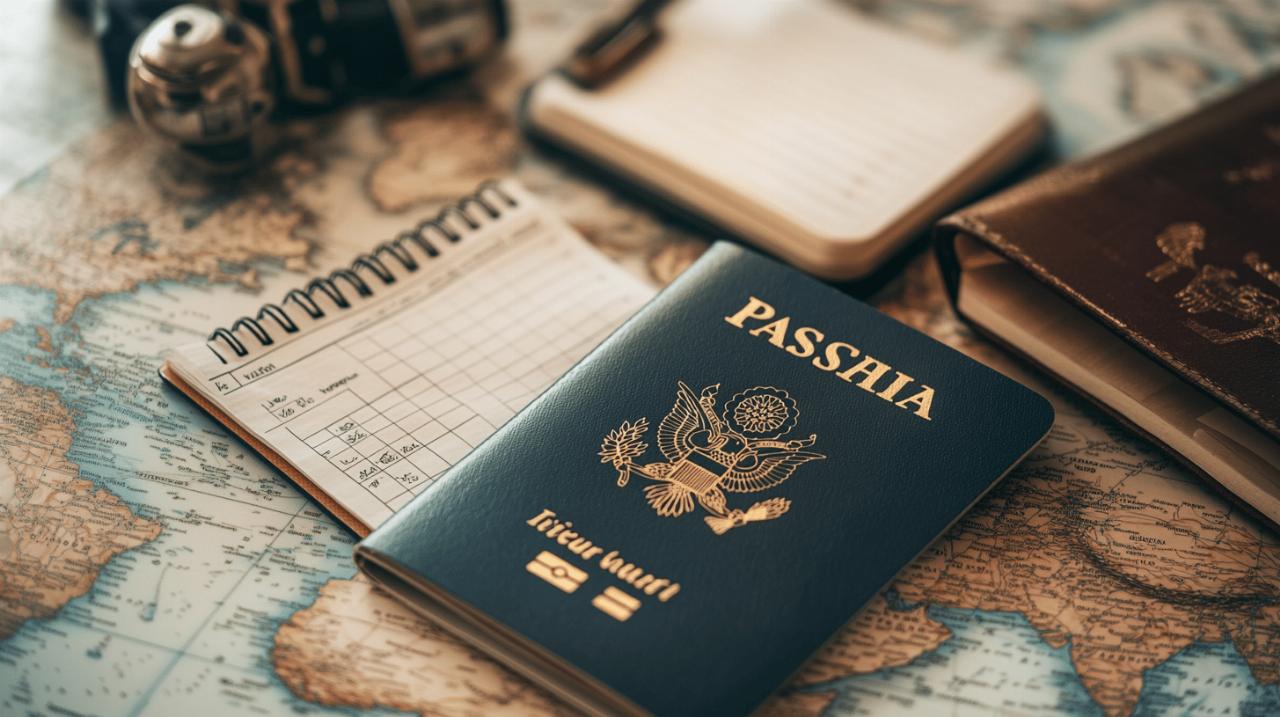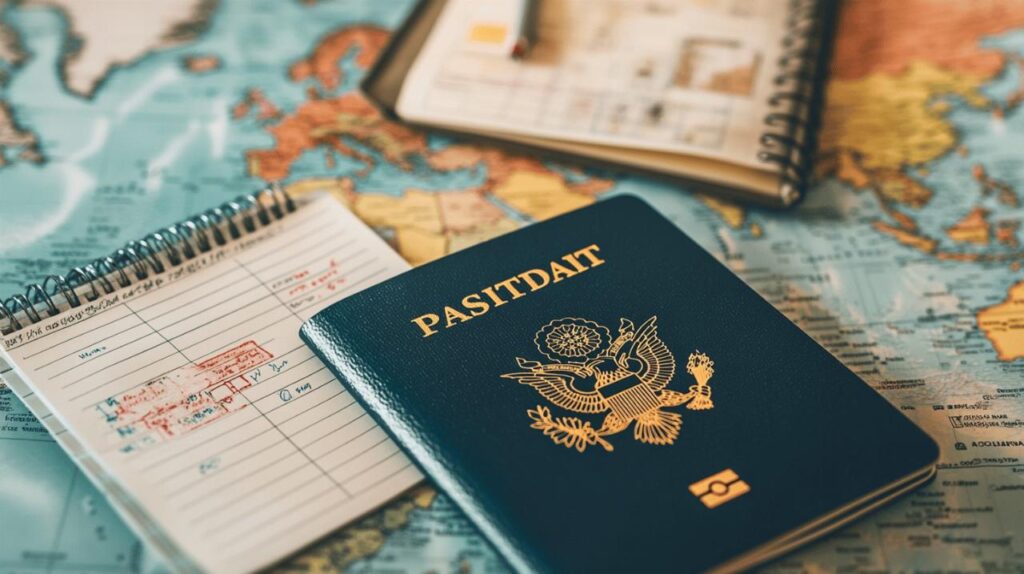Navigating the UK passport application process can be a bit confusing, especially when you're preparing for international travel. Whether you're applying for the first time or renewing an existing passport, understanding the timelines and requirements is crucial for stress-free travel planning. Let's explore everything you need to know about UK passport processing, including why your passport number changes when you renew.
Understanding uk passport numbers and renewal
When you get a new passport, whether through renewal or replacement, the number on it will be different from your old one. This isn't just an administrative quirk – it's an important security feature of the UK passport renewal system. Each passport is a unique document tied to your identity at the specific time it's issued, complete with updated security features and biometric information that comply with current international standards.
Why passport numbers change with each new document
Your passport number is essentially a unique identifier for that specific travel document. The GOV.UK passport office issues a fresh number with each new passport to maintain security and prevent fraud. Think of it like getting a new mobile phone – even though you're the same person using it, the device itself has a different serial number. This system helps immigration authorities worldwide track and verify travel documents more effectively, ensuring the UK passport remains a trusted identity verification document internationally.
What happens to your old passport after renewal
Once your new passport is issued, your previous one becomes invalid for travel. However, it's wise to keep your old passport in a safe place rather than discarding it. The old document can serve as valuable proof of your travel history, which might be particularly helpful when applying for visas to certain countries. Some nations want to see evidence of previous travel, and your expired passport provides this documentation. Additionally, if your old passport contains valid visas that haven't expired, you may need to carry both documents when traveling to those specific countries.
Standard processing times for uk passports
Planning ahead is essential when it comes to passport applications. The current standard processing time for UK passports is typically within 3 weeks from the date the Passport Office receives your application and supporting documents. However, this timeline is not guaranteed and can fluctuate based on application volume and seasonal demands. It's important to note that the processing time only begins once all your required documentation has reached the passport office, not from when you submit your online application.
Current timelines for first-time applications
First-time passport applications often take longer to process than renewals because they require more extensive verification. The HM Passport Office advises applicants to allow up to 10 weeks for processing, especially during peak travel seasons like summer. This extended timeline accounts for potential identity verification steps, including possible interviews for first-time adult applicants. Using the online application tracking service is the best way to monitor your application progress. The digital photo requirement has streamlined the process somewhat, but proper preparation of all documentation remains crucial for avoiding delays.
Expedited services and emergency options
For those facing urgent travel needs, the UK offers expedited passport services at additional cost. If you're dealing with a medical emergency, family illness or death, or essential government business abroad, you can contact the Passport Adviceline for assistance with urgent applications. These expedited services typically involve in-person appointments at passport offices and higher fees than standard applications. However, even with these services, it's inadvisable to finalize travel arrangements until you have your new passport in hand, as approval is never guaranteed.
Application requirements and documentation
 Successfully navigating the passport application process begins with understanding exactly what documentation you'll need. For all UK passport applications, you'll need to provide proof of identity and citizenship, along with a suitable photo that meets strict guidelines. The application can be completed online through the official GOV.UK website or via paper forms available at Post Office branches, though the latter incurs an additional £16 fee.
Successfully navigating the passport application process begins with understanding exactly what documentation you'll need. For all UK passport applications, you'll need to provide proof of identity and citizenship, along with a suitable photo that meets strict guidelines. The application can be completed online through the official GOV.UK website or via paper forms available at Post Office branches, though the latter incurs an additional £16 fee.
Essential documents needed for passport processing
Adult passport applications require your current passport if you're renewing, or other identity documents for first-time applications. You'll need to submit a digital photo when applying online, which must have been taken within the last month against a plain cream or light grey background. The photo must be a close-up of your head and upper shoulders with no obstructions to your face. Children's passports have similar requirements but also need consent from all persons with parental responsibility. Court orders related to the child may also be required in certain situations. All applications must be accompanied by the appropriate fee – currently £94.50 for an adult online application or £107 for paper applications.
Common application mistakes to avoid
Many passport applications face delays due to preventable errors. One frequent mistake is submitting photos that don't meet the strict guidelines, such as images with inappropriate lighting, expressions, or backgrounds. Another common error is incomplete documentation or forms filled out incorrectly. The identity verification section often causes confusion, especially regarding who can serve as a countersignatory for your application. Additionally, some applicants mistakenly believe that paying for expedited service guarantees approval within a specific timeframe, which is not the case. Finally, many travellers make the critical error of booking international travel before receiving their new passport, which can lead to costly cancellations if processing takes longer than expected.
Important considerations before travel
Beyond simply having a valid passport, international travellers need to be aware of several important factors that could affect their journey. Different countries have varying requirements regarding passport validity, and understanding these rules is essential to avoid being denied entry at foreign borders. Proper preparation and awareness of these requirements can help ensure smooth travel experiences.
Validity requirements for international destinations
Many countries require that your passport remains valid for a minimum period beyond your planned departure date – typically six months. This requirement exists even if you're only planning a short visit. For example, popular destinations across Europe, Asia, and the Americas often enforce this six-month rule. It's crucial to verify the specific requirements for your destination well before travel. Additionally, some nations require that you have blank pages available in your passport for entry stamps. The Foreign Office travel advice section on GOV.UK provides up-to-date information on entry requirements for different countries, making it a valuable resource for pre-travel planning.
What to do if your passport is lost or stolen
If your passport goes missing or is stolen, you must report it immediately to prevent potential identity theft. You can do this online through the GOV.UK website or by calling the Passport Adviceline. Once reported, the passport will be cancelled and can no longer be used for travel, even if you find it later. To replace a lost or stolen passport, you'll need to complete a new application, pay the full fee again, and potentially provide additional evidence of your identity and citizenship. For those who discover their passport is missing while abroad, contact the nearest British Embassy, High Commission, or Consulate for guidance on obtaining emergency travel documents that will allow you to return to the UK.



